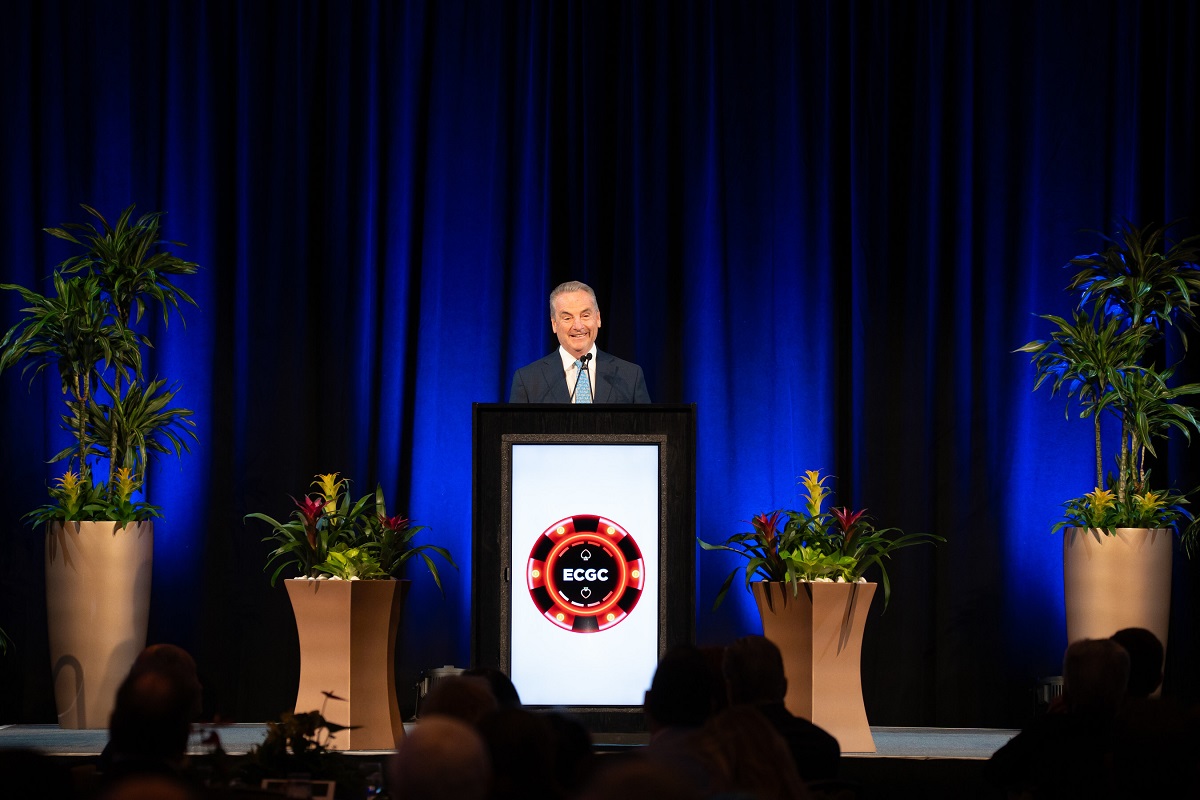
Mexico Gambling Market to Hit Valuation of US$ 40.64 Billion By 2033 | Astute Analytica
The Mexico gambling market was valued at US$ 11.37 billion in 2024 and is expected to reach US$ 40.64 billion by 2033, growing at a CAGR of 15.71% during the forecast period 2025–2033.
Mexico’s gambling market navigates a transformative legal landscape under the Federal Gaming and Raffles Law (LJRS), amended in 2021 and further refined in 2023 to address emerging challenges. As of 2024, the Dirección General de Juegos y Sorteos (DGOJ) mandates that operators maintain audited capital reserves of at least US$2 million and implement geoblocking tools to prevent cross-border betting—key measures tightening Mexico’s historically porous regulatory regime. State-level disparities complicate compliance: Jalisco imposes a 7% local tax on gross gaming revenue (GGR), while Quintana Roo exempts integrated resorts to boost tourism. The FATF’s 2023 audit highlighted AML weaknesses, prompting real-time transaction reporting for bets exceeding $2,500 via SEGOB’s centralized platform.
Despite progress, Mexico State and Guerrero remain hubs for illegal gambling dens in the Mexico gambling market, which SEGOB estimates siphon $450 million annually from licensed operators. Licensing delays (12–18 months) and hefty fines for noncompliance—up to $1.5 million for AML breaches—have consolidated market power among incumbents like Grupo Caliente and Codere. Looking ahead, federal rulings on cryptocurrency betting (pending Q4 2024) could redefine growth, as blockchain adoption accelerates among newer entrants like Betcris.
Key Findings in Mexico Gambling Market
| Market Forecast (2033) | US$ 40.64 Billion |
| CAGR | 15.71% |
| By Type | Casino (44.86%) |
| By Channel Type | Offline (53.97%) |
| By Payment method | Credits and Debits Cards (39.36%) |
| By End Users | Gambling Enthusiasts (65.10%) |
| Top Drivers |
|
| Top Trends |
|
| Top Challenges |
|
Land-Based Casinos: Adapting to Declining Demand and Tourism Shifts
Mexico’s 347 land-based casinos face structural challenges in the gambling market, with 2023 revenue dipping 5% year-over-year to $1.4 billion due to waning foot traffic and inflationary pressures. Urban centers like Mexico City and Monterrey—home to 45 and 32 casinos respectively—report an 8% decline in per-venue revenue, as labor costs surge by 12% and younger patrons migrate online. Luxury resorts buck the trend: Grupo Caliente’s Tijuana Hippodromo Casino saw VIP table game revenue climb 14% in 2023, driven by cross-border traffic from San Diego. Slot machines, still generating 78% of casino income, are evolving—Aristocrat’s “Skill-based Cash Claw” machines now feature mini-games targeting Gen Z.
Meanwhile, 14 small casinos in Baja California closed since 2022, unable to afford biometric entry systems priced at $120,000 annually per venue in the Mexico gambling market. Diversification strategies are emerging: 22% of ancillary revenue now comes from non-gaming events, such as sold-out concerts at CDMX’s Casino Palace. In coastal regions, hurricane-related closures in Quintana Roo (affecting 7 casinos in 2023) underscore climate risks, prompting operators to invest in $40 million insurance pools.
Online Gambling Boom: Mobile Adoption and Payment Innovations
Mexico’s online gambling market, projected to hit $1.4 billion in 2024, thrives on smartphone penetration (82%) and cheap 4G data plans ($8/month average). Players aged 18–34 dominate the market (71%), drawn to Bet365’s live-streamed Liga MX matches and Codere’s bonus-heavy app. Live dealer games surged 33% YoY, with Evolution Gaming reporting 500,000 monthly users for its Mexico-specific baccarat tables. Payment integration bridges financial gaps: OXXO’s Spin service processes 41% of deposits via cash vouchers, while Bitcoin adoption grows slowly (6% of transactions) despite regulatory ambiguity. However, cybersecurity remains a hurdle—DGOJ’s post-February 2024 DDoS attack now requires SSL encryption and two-hour breach disclosure windows. Regional nuances persist: northern states prefer sports betting (67% of online revenue), while central Mexico favors slots (58%). However, monopolistic practices loom—Spain’s Luckia controls 19% of the poker market through exclusivity deals with Mexican influencers like Andrés “Kraneo” Chaurand. With 5G networks expanding to 15 cities by Q3, latency issues during live bets (a 27% complaint rate) may soon ease.
Sports Betting Dominance: Soccer, Partnerships, and Integrity Risks
Sports betting fuels 39.51% of Mexico’s gambling market revenue, driven by soccer’s cultural ubiquity. Liga MX’s 2023 Apertura saw $2.1 billion wagered, spiking 18% during América vs. Chivas clashes. Strategic sponsorships deepen engagement: Sorare’s NFT fantasy league with Tigres UANL attracted 200,000 users in six months, while Betcris’ in-stadium kiosks at Estadio Azteca process $3 million per matchday. The 2026 World Cup looms large—DraftKings’ $52 million ad blitz targets Mexican expats in the U.S., leveraging dual-national stars like Julián Quiñones. Yet match-fixing persists: SEGOB’s Integrity Unit uncovered 12 third-division players manipulating yellow card stats for Costa Rican syndicates. Automation is mitigating risks—Sportradar’s AI flags irregular betting patterns in 92% of Liga MX matches—but oversight gaps linger in amateur leagues. Basketball and baseball are niche bright spots; the NBA’s Mexico City games drove a 27% YoY increase in prop bets, while the Sultanes de Monterrey’s partnership with FanDuel boosted baseball handle by $12 million in 2023.
Economic Contributions: Jobs, Tax Revenues, and Regional Disparities
Gambling sustains 148,000 direct jobs in Mexico gambling market, though wages lag—dealers earn $460/month on average, 23% below the living wage. Federally, the industry contributed $700 million in taxes in 2023, with casinos providing 58% via a 30% GGR levy. State-level disparities are stark: Nuevo León (24% of tax contributions) and Quintana Roo (21%) benefit from dense casino clusters, while Chiapas and Oaxaca account for <1%. Tourism multipliers are immense—Cancún’s casino visitors spend $290 daily versus $110 for others—but regional inequality widens: Mexico City captures 34% of revenue despite housing 13% of the population. IMCO estimates illegal operators drain $310 million in annual taxes, though SEGOB’s blockchain payment-tracker pilot (launched April 2024) slashed unlicensed revenue by 19% in three months. Unionization efforts are rising—30% of casino workers now belong to SUTTCLM, which negotiates healthcare benefits—but automation threatens roles: self-service betting terminals will replace 8,000 cashiers by 2026.
Tourism Integration: Casinos, Resorts, and Cross-Border Opportunities in Mexico Gambling Market
Integrated resorts drive Mexico’s $2.1 billion gambling-tourism nexus, blending gaming with luxury stays and golf. Grupo Vidanta’s Nuevo Vallarta property draws 500,000 annual visitors, 44% from the U.S., via packages bundling blackjack tournaments with yacht charters. Cruise tourism amplifies growth: Royal Caribbean’s Cozumel stopovers generate $180 million from casino excursions, targeting retirees with free-play credits. Cross-border betting is surging in gambling market of Mexico—23% of Texas bettors use VPNs to access Caliente’s U.S. college football markets—but peso volatility dampens foreign spending. Post-2023 devaluation, Californian visitors reduced average casino budgets by 14%, prompting operators to lure Argentinian high rollers with direct flights to Mérida. However, climate risks temper gains—Hurricane Otis disrupted 12 coastal casinos in 2023, costing $87 million in closures. For sustainability, SECTUR’s 2024 initiative promotes “golf-and-gaming” circuits in underdeveloped states like Aguascalientes, leveraging partnerships with PGA Tour Latinoamérica.
Technology Adoption: AI, Blockchain, and Virtual Reality Advances
Mexican operators in gambling market invested $230 million in tech upgrades in 2023, prioritizing AI tools for personalization and fraud detection. Codere’s chatbot resolves 83% of inquiries with a 4.7/5 satisfaction score, while Caliente’s machine learning model flags problem gamblers via behavioral cues like 3 AM logins. Virtual Reality casinos are expanding—Win Systems’ VR parlors in Guadalajara offer Meta Quest-powered blackjack, drawing 12,000 monthly users—but remain niche due to $600 headset costs. Blockchain adoption addresses transparency: 15% of licensees use Bitso for Bitcoin payouts, settling withdrawals in 22 minutes versus three days for banks. Cybersecurity gaps persist, evidenced by January 2024’s $4.5 million hack of Apuesta Total’s player database. Rural adoption lags—only 38% of Oaxaca’s casinos have 5G—but partnerships with Telcel aim to launch 150 5G gaming zones by 2025, slashing latency for esports bets.
Social Challenges: Addiction, Crime, and Regulatory Backlash
Problem gambling afflicts 2.3% of Mexican adults, per CONADIC’s 2024 survey—double the global average—with Sonora (4.1%) and Sinaloa (3.8%) hardest hit in the gambling market. SEGOB mandates operators fund 134 addiction clinics via 1% GGR contributions, yet only 17% of users self-exclude despite pop-up prompts. Cartels exploit weak oversight: 2023 saw $270 million laundered through Michoacán casinos, triggering federal raids and 11 venue closures. Public resistance grows—49% oppose new casinos per IEP polls—stalling projects in Querétaro and Puebla. Youth protections tightened in January: influencers like Rivers_GG face $25,000 fines for promoting betting on Twitch. Meanwhile, industry-funded harm reduction campaigns—like Caliente’s “Juego Responsable” school workshops—reach 200,000 teens annually. Balancing growth and ethics remains pivotal, as unchecked expansion risks replicating Spain’s 2010 addiction crisis, warns OECD’s 2024 Mexico report.
Mexico Gambling Market Key Players:
- Big Bola Casinos
- Caliente
- Codere México
- PlayCity Casino
- Strendus
- Betcris México
- Other Prominent Players
Key Segmentation:
By Type
- Sports
- Fixed Odds Sports Betting
- Pari-Mutuel Betting (Horse and Dog racing)
- In-Play/Live Betting
- Exchange Betting
- Spread Betting
- Others
- Casino
- Blackjack
- Baccarat
- Teen Patti
- Three Card Poker
- Four card poker
- Red Dog
- Others
- Lottery Games
- Scratch-offs
- Bingo
- Keno
- Electronic Gaming Machines
- Others
By Channel Type
- Offline
- Casinos
- Betting shops/halls
- Arcades
- Bookmakers
- Online
- Virtual Game
By Payment Method
- Credit and debit cards
- E-wallets
- Prepaid cards and Vouchers
- Bank Transfers
- Cryptocurrencies
- Others
By End User
- Gambling Enthusiast
- Dabblers
- Others










